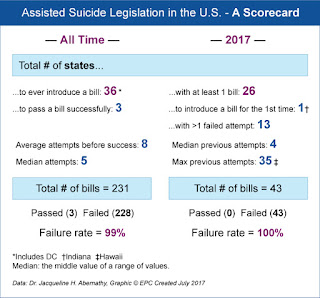 |
| Alabama Governor, Kay Ivy |
- Alabama: In 2017, Alabama enacted the Assisted Suicide Ban Act;
- Arizona: In 2014, Arizona strengthened its law against assisted suicide.
- Georgia: In 2012, Georgia strengthened its law against assisted suicide.
- Idaho: On April 5, 2011, Idaho strengthened its law against assisted suicide.
- Louisiana: In 2012, Louisiana strengthened its assisted suicide/euthanasia ban.
- New Mexico: In 2016, the New Mexico Supreme Court overturned a lower court decision recognizing a right to physician aid in dying, meaning physician assisted suicide. Physician-assisted suicide is no longer legal in New Mexico. See Morris v. Brandenburg, 376 P.3d 836 (2016).
- Ohio: In 2017, Ohio strengthened its law against assisted suicide. See http://codes.ohio.gov/orc/3795
- South Dakota: In 2017, the South Dakota Legislature passed Concurrent Resolution 11, opposing physician-assisted suicide. See Bill History.
- Utah: In 2018, Utah amended its manslaughter statute to include assisted suicide. For more information, see https://le.utah.gov/~2018/bills/static/HB0086.html and click “status.”





